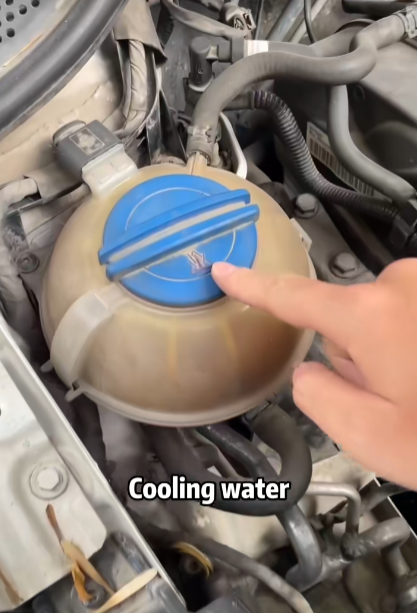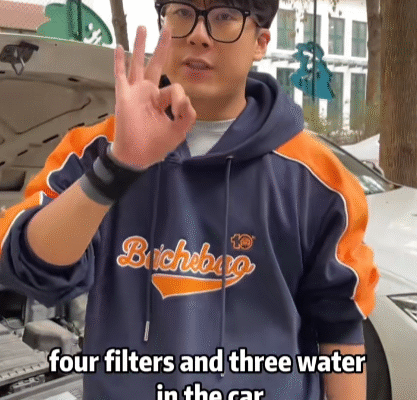
Owning a car is a big responsibility, but maintaining it doesn’t have to be complicated. With a little bit of knowledge, you can keep your vehicle in great condition for years. At the heart of every well-maintained car are three crucial elements: oil, filtration, and water. Understanding how they work and how to care for them can save you money, reduce breakdowns, and increase your vehicle’s lifespan. In this article, we’ll explore the five types of essential oils your car needs, the four types of filtration systems, and the three kinds of water that play critical roles in its maintenance.
Five Types of Oil Every Car Owner Should Know
Oil is often referred to as the lifeblood of a vehicle. Without proper lubrication, a car’s engine and components can quickly wear out or fail. Here are five types of oil that every car owner should be familiar with:
- Engine Oil (Motor Oil)
Engine oil is the most critical lubricant in your car. It lubricates internal engine components, reduces friction, prevents overheating, and helps clean sludge and deposits. Regular oil changes—typically every 3,000 to 7,500 miles depending on the vehicle and oil type—are essential for engine health. There are several grades of motor oil, including conventional, synthetic, and semi-synthetic. Synthetic oil offers better protection and lasts longer but costs more. - Transmission Fluid
Transmission fluid is vital for vehicles with automatic transmissions. It cools and lubricates the gears and clutches within the transmission system. Low or dirty transmission fluid can cause shifting problems or complete transmission failure. Some vehicles have sealed transmissions, so check your owner’s manual for inspection or service intervals. - Brake Fluid
Brake fluid is a hydraulic fluid that transmits the pressure from your foot on the brake pedal to the brake calipers. It must be free from air and moisture to work properly. Over time, brake fluid absorbs moisture from the air, which can reduce braking efficiency. Most manufacturers recommend replacing brake fluid every 2 years or so. - Power Steering Fluid
Power steering fluid makes it easier to steer your vehicle by reducing the effort needed to turn the wheel. If your steering feels stiff or noisy, it may be time to check and replace this fluid. Although not all modern cars use hydraulic power steering (many now use electric systems), those that do must have clean, adequate fluid levels. - Differential Oil (Gear Oil)
This oil lubricates the differential—the component that distributes engine power to the wheels. In rear-wheel or four-wheel-drive vehicles, differential oil is crucial. It’s thicker than engine oil and is usually changed less frequently—perhaps every 30,000 to 60,000 miles. Ignoring differential oil can lead to expensive gear damage.

Four Types of Filtration Systems in a Car
Filters play a vital role in keeping your car running smoothly by keeping out dirt, debris, and contaminants. Here are the four main filters found in most vehicles:
- Oil Filter
The oil filter removes contaminants from engine oil. This keeps the oil clean and extends engine life. Every time you change your oil, you should also replace the oil filter. Using a high-quality oil filter helps prevent harmful particles from circulating through the engine. - Air Filter
This filter cleans the air that enters the engine for combustion. A clean air filter ensures optimal air-to-fuel ratio, better fuel efficiency, and more power. Over time, air filters become clogged with dirt, reducing engine performance. It’s recommended to change the air filter every 12,000 to 15,000 miles, depending on driving conditions. - Cabin Air Filter
The cabin air filter purifies the air that enters the interior of your vehicle through the heating and air conditioning systems. It traps dust, pollen, and other airborne particles. If you notice a musty smell in your car or weak airflow, it might be time to change your cabin air filter—usually every 15,000 to 30,000 miles. - Fuel Filter
The fuel filter screens out contaminants from the fuel before it reaches the engine. Clean fuel helps maintain engine performance and fuel efficiency. Dirty fuel filters can lead to engine hesitation, poor acceleration, or stalling. Depending on your vehicle and fuel type, you might need to replace the fuel filter every 30,000 to 60,000 miles.

Three Types of Water That Matter for Car Maintenance
Water might seem like a simple thing, but different types of water have important roles in keeping your vehicle running safely and smoothly. Let’s explore three essential water-related fluids:
- Coolant (Antifreeze + Water Mixture)
Coolant, also known as antifreeze, is a 50/50 mixture of water and antifreeze chemicals. It prevents the engine from overheating in summer and freezing in winter. The cooling system circulates this fluid through the engine and radiator. It’s important to regularly check coolant levels and replace it according to your car’s maintenance schedule—usually every 30,000 to 60,000 miles. - Windshield Washer Fluid (Water-Based)
Windshield washer fluid is typically a water-based solution mixed with detergents and antifreeze agents. It helps keep your windshield clean and visibility clear, especially in bad weather. Always ensure the washer reservoir is filled, and avoid using plain water, which can freeze or cause mineral buildup. - Battery Water (Distilled Water)
For vehicles with serviceable lead-acid batteries, distilled water is used to maintain the electrolyte level. This is not required for sealed or maintenance-free batteries, but in traditional batteries, the water ensures proper chemical reactions for charging. Never use tap water, as it contains minerals that can damage the battery.

Conclusion
Routine maintenance may seem daunting at first, but understanding the basic fluids and filtration systems in your car can make it simple and effective. By keeping track of the five key types of oil, four critical filtration systems, and three essential water-based fluids, you can prevent major repairs and ensure a smoother, safer driving experience.
Car care doesn’t require advanced mechanical skills. Often, it’s about being observant—listening for strange noises, watching for dashboard warning lights, checking fluid levels, and sticking to the service schedule outlined in your owner’s manual. With this basic knowledge, you’re not just maintaining a machine—you’re preserving an investment and protecting everyone who rides with you.
So the next time someone asks you about car maintenance, you can confidently explain the five oils, four filters, and three waters—and maybe even impress them with your knowledge!



